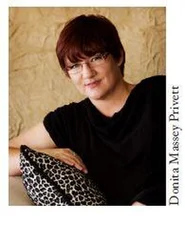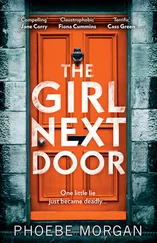Daphne nodded, but said nothing for a while. They were passing into the sort of countryside Michael thought was probably Green Belt, the edge of Hertfordshire, and the signs were coming up for the A1. ‘Were they divorced, your parents?’
‘Grown-ups didn’t tell children things like that. Not then. Don’t you remember?’
‘I suppose I do. What became of your father?’
‘He’s in an old people’s home. A care home. I never lived with him after I went to Zoe. My parents must have divorced because he married again. I didn’t have a happy childhood up to the time we used to go into the tunnels, but I did after that, near perfect after that.’
‘I haven’t any children,’ said Daphne. ‘Have you?’
‘Two. One of them is mostly in America and the other one is usually in Hong Kong.’
There was nothing much to say to that; ‘You must miss them’ was something, but Daphne didn’t go in for truisms and clichés. She turned off the Hendon Way and took Fortune Green Road so that she could turn into Michael’s street, where he lived in a tall, narrow red-brick house.
‘This has been very nice of you, Daphne.’
‘It was on my way,’ she said.
‘Will you come in for a moment?’
‘I don’t think I will. Not this time. But now I know where you live. Doesn’t that sound ominous? I mean that now I know it, we can perhaps keep in touch.’ She handed him a card identical to the one she had given Alan Norris. ‘Goodbye, Michael.’ She waited until he was in the house, then she backed out of his garage drive, drove down the hill until she could turn into Hamilton Terrace. There, obliged to park the car in the street, she walked through the glass-roofed covered way and let herself into the house by the glossy black front door. As she sometimes did when coming home, she stood in the wide hallway and, addressing her generous third husband who had left her all he possessed, said to the walls and the staircase, ‘Thank you for everything, Martin.’
Up the hill in Ingham Road, Michael was also paying a sort of tribute to a dead spouse. This necessitated climbing two quite steep flights of stairs but it seldom made him short of breath. He was used to it and was sure the stairs were good for his heart as he did it every day. Not to sleep in this bedroom that covered the whole second floor – it was years since he had done that – but to sit there for a while in one of the little pink armchairs and check that the room was just as it should be, just as it had been when it was Vivien’s. Mrs Bailey had been in to clean the house while he was in Loughton and it was not unknown for her to disarrange things. The pictures, for instance, were sometimes left hanging not quite straight, the cut-glass scent bottles with their silver stoppers pushed too close together and the pink satin pincushion with the brooches and pins so replaced on the dressing table after the surface had been dusted as to overbalance on the edge and threaten to fall on to the carpet.
He sometimes wondered what Mrs Bailey thought of this idiosyncrasy of his, keeping Vivien’s bedroom as it had been when she was alive, but he didn’t really care. For some years now he had thought of himself as too old to bother with how the things he did looked to other people.What did it matter? He could do as he liked at his age. His children probably thought he was senile, but his children were hardly ever here, and when they were, they never went up to the second floor. He didn’t think about his father.
CHAPTER FOUR
COLIN QUELL HAD very little interest in people, what they might think, how they might act in the future. If he had any opinion of those gathered in George and Maureen Batchelor’s living room, it was to marvel that they had lived so long and apparently (with the exception of George) without handicap or disease. Quell proceeded with his inquiry on scientific fact alone and during the week following his visit to Loughton received various reports on what had been discovered as to the age and provenance of the hands.
That one was a woman’s and the other a man’s he already knew. It seemed that the woman had been in her late twenties and the man a few years younger. They had not died at the scene but some distance away, perhaps a hundred yards, a fact established by the soil with which the hands were filled, its content clay rather than loam. This satisfactorily confirmed Quell’s view that the hands’ original burial had been in those tunnels the old people remembered. It was no proof of that, of course, but it made his theory most probable.
As he read the report a second time – it came both on screen and as printed sheets of paper or hard copy – he thought once more, the way he had been thinking since he was first assigned to this case, that – well, who cared? These two whose hands were being investigated had lain in the clay for nearly seventy years. Someone no doubt long dead had killed them and placed the hands in a biscuit tin for some unfathomable reason. Quell wasn’t shocked by this, he had seen too much of man’s iniquity to react in that way, but he was shocked at the idea of taxpayers’ money being wasted on an investigation. If nothing was discovered, well and good, but if, after months of painstaking examination, he managed to find who had killed and buried them, Quell, recalling a smidgen of sixth-form Latin, asked himself, Cui bono?
An invitation had come to Freya’s wedding and it seemed to Alan that Rosemary could talk of nothing else. Like most men, he was not particularly interested in weddings, not even his granddaughter’s. There was no mention of a church or even of a town hall on the pretty card but only of the hotel by the river at Kew where both Norrises assumed ‘the wedding breakfast’, as Rosemary called it, would take place.
‘I suppose the ceremony will be there as well,’ said Alan.
‘I sincerely hope not.’ Rosemary scrutinised the card again. ‘If it’s going to be one of those peculiar arrangements in a hotel lounge, I for one shan’t feel they’re married at all.’
‘It’s their choice. Nothing to do with us. I’ve heard of this place by the river. It’s supposed to be very pretty.’
Rosemary said she had better get on with the dress she was making, this time for herself, and headed for her sewing room. Alan stopped her, saying that on a lovely day like this one they should go out for a walk. He intended to go and he didn’t want to go alone. ‘Buy yourself a dress for once,’ he said. ‘We can afford it. We can afford designer – isn’t that what they call it?’
She made no reply to this but agreed to the walk, and although neither of them felt up to their marathons of a few years ago, the round trip of down The Hill and along Brook Road to the High Road and the cricket field, up Traps Hill and home was quite within their power. Alan had told himself he didn’t want to go alone, but in fact he did want to. To walk in the spring sunshine along these familiar streets, past these familiar houses and gardens and to think was what he wanted. As it happened, Rosemary wasn’t saying much. She also was perhaps thinking, and in her case of the lamentable state society was in when it countenanced young couples getting married in hotels instead of St Mary’s Church. But he mustn’t be disloyal even in thought.
He put his hand in his jacket pocket to touch the card that had been in there for the past ten days or so. Its presence troubled him a little because it shouldn’t be there; he should never have picked it up, or at least he should have destroyed it when he got home. Instead he had read it several times over: Daphne Furness, it said, 67A Hamilton Terrace, London NW8. Then came an email address, a mobile phone number and a landline. He thought of her as she had been in George Batchelor’s living room, looking years younger than any woman there, her wonderful legs, those shoes. Don’t go there, he told himself, using an injunction Freya or maybe Fenella had taught him. Don’t.
Читать дальше












